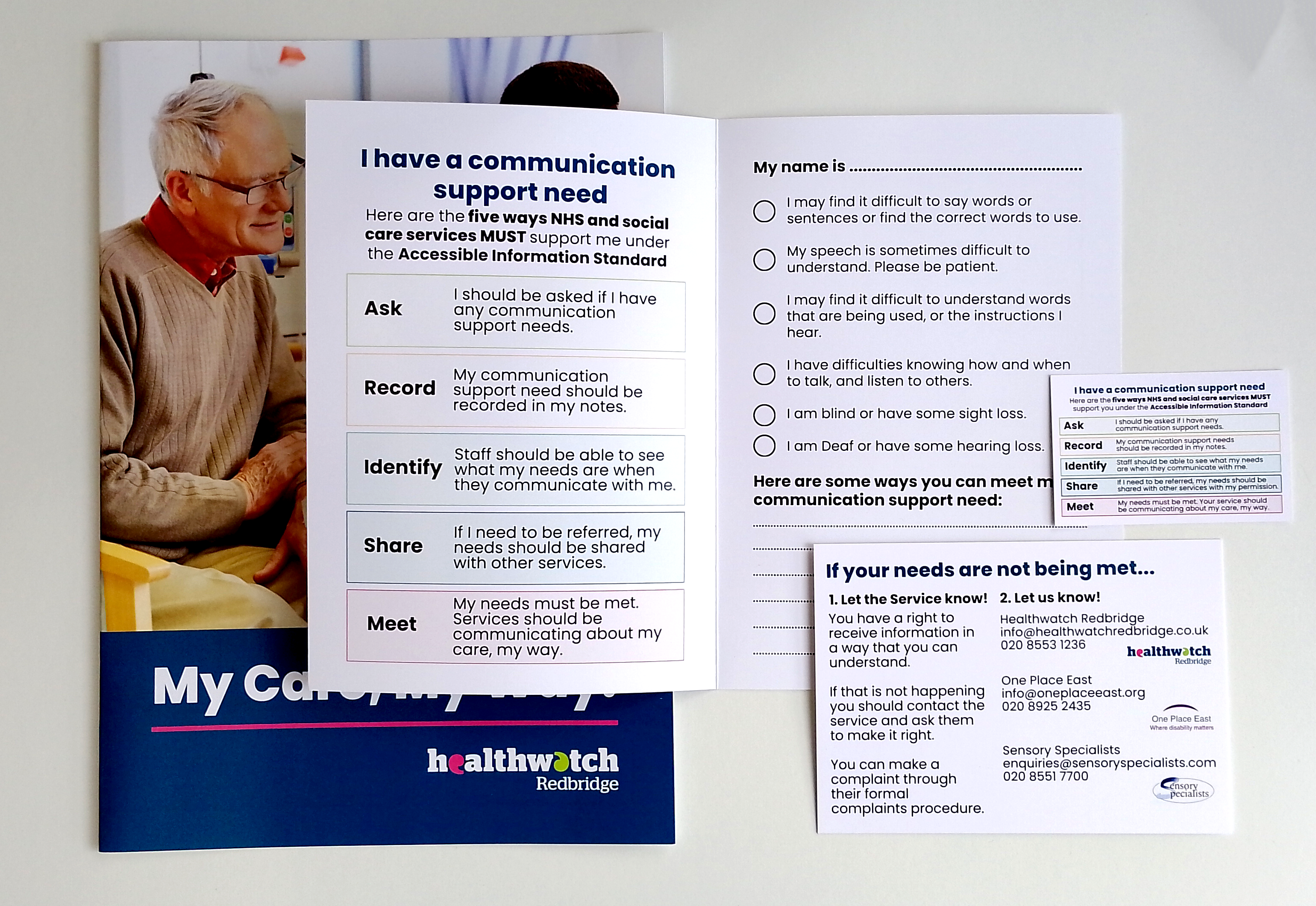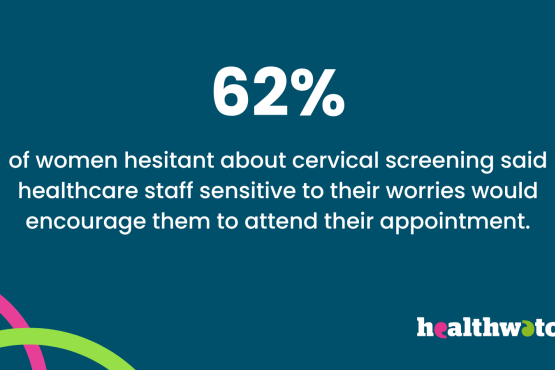The Accessible Information Standard says that people who have a disability or sensory loss should get information in a way they can access and understand.
It also says that they should get support with communication if they need it.
You may have a communication support need if:
- You find it difficult to say words or sentences or find the correct words to use.
- Your speech is sometimes difficult to understand.
- You may find it difficult to understand words that are being used or the instructions you hear.
- You have difficulties knowing how and when to talk, and listen to others.
- You are blind or have some sight loss.
- You are Deaf or have some hearing loss.
If you have a communication support need there are 5 key things the NHS and social care providers MUST do to meet your communication support needs.
- Ask: You should be asked if you have any communication support needs.
- Record: Your communication support needs should be recorded in your notes.
- Identify: Staff should be able to see what your needs are when they communicate with you.
- Share: If you need to be referred, your communication support needs should be shared with other services, with your permission.
- Meet: Your needs must be met. Services should be communicating with you about your care, your way.
Share Your Story at a Recent Appointment
We want to know if health and social care services are doing what they are supposed to.
If you live in Redbridge and have recently had a health or care appointment, we’d like to know if they met your communication needs.
You can take our survey online at the link below, over the telephone by calling 020 8553 1236 or by requesting an easy read version from info@healthwatchredbridge.co.uk

We deliver dedicated sessions to help patients advocate for their communication support needs
At our Accessible Information Standard: Know Your Rights sessions we will explain what the Accessible Information Standard is and what the NHS and social care services must do to meet patient needs.
Get in touch If you are a group or organisation that works with individuals with communications support needs and would like us to deliver a session to your members.

We have made resources to help you get your needs met by services.
These include:
- A booklet to record your communication support needs and how services can meet your needs.
- An Accessible Information Standard card to show to services to remind them of what they must do.
You can download digital copies below, or request a resource pack by emailing info@healthwatchredbridge.co.uk or calling 020 853 1236.


